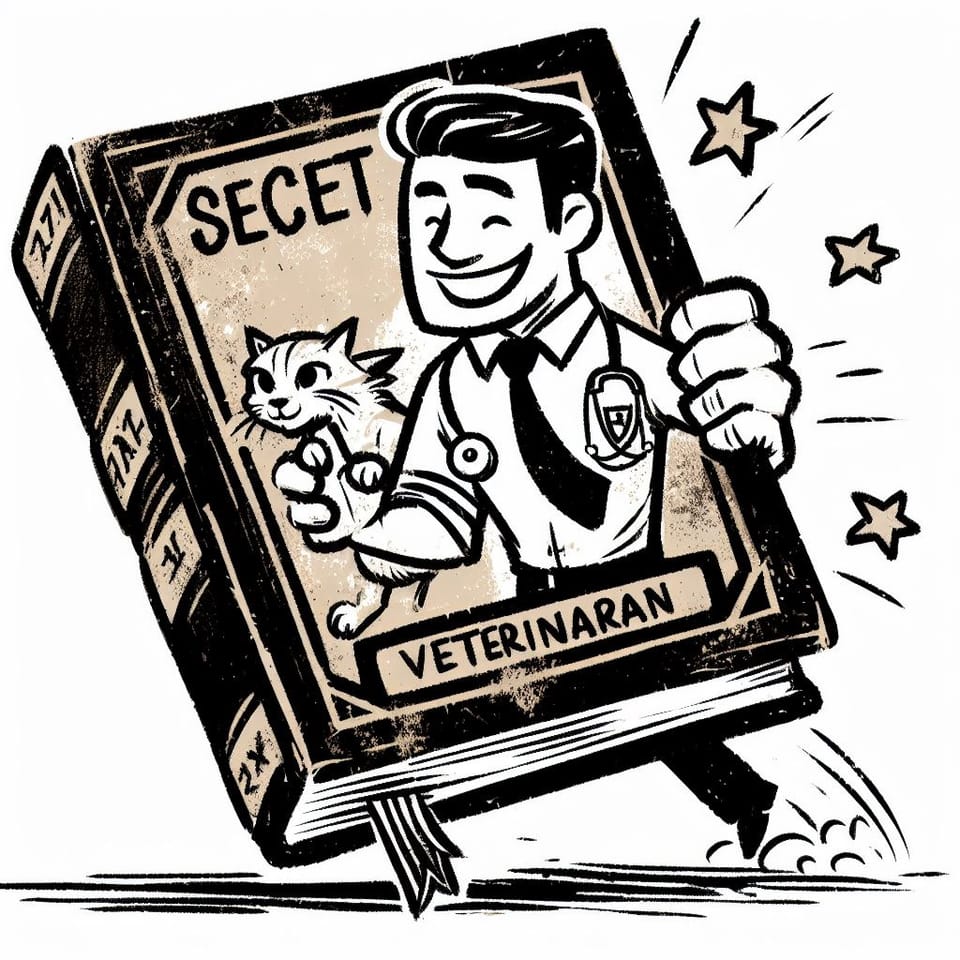Secrets to Success for New Grad Vets

Survival skills in veterinary medicine used to be learned through ritualized hazing and abandoning new graduates in impossible situations to fend for themselves. Which was about as educational as a seagull-infested beach is to a hatchling sea turtle. The situation got so unbearable that a cottage industry of advisors has sprung up to advise us all on how to give advice.
It seems we "seasoned" veterinarians are reluctant to coach the new kids on the block on our own. Maybe we're worried about offending them. Maybe we think they won't listen. Maybe we don't want to appear outdated. Nobody wants to be judged in comparison to a newer model. Now I know how my 1993 Camry felt.
But I'm determined to buck the trend, because I see the wily old wisdom of age not being passed down to the next generation. And I don't want anyone else to have to learn these lessons the hard way if they can avoid it. Corporate practice seems to be scrubbing the old, pragmatic sagacity of experienced clinicians and turning it into generically bland advice like "practice self-compassion".
That stuff's not helpful. Here's how you really survive on the floor:
1. Get Down and Dirty
Clean something gross. The grosser the better, don't just wipe down a cat sneeze. But do it publicly. Make sure the nursing team sees. If they see you on your hands and knees, inhaling disinfectant spray and using some elbow grease to scrape dog puke out of a floor drain, they'll respect the hell out of you. If your nurses like you, they'll bail you out. And you'll need lots of bailing out. Show them you're not above any dirty job.

2. Master the Escape Room
You need three automatic excuses to get out of an exam room at any given moment. Drill them like you're in boot camp. You should be able to pull them out of your head like the gestational periods of livestock you memorized in second year. Doesn't matter what they are, as long they are things a reasonably busy clinician can be expected to need to do at any given moment in the day. Falling behind is deadly, and you need to be able to vanish like an octopus in a cloud of ink when you get cornered.

3. Separate the Wheat from the Chaff
Most client-reported information is not medically relevant. Clients don't think in terms of "duration" or "frequency" of clinical signs. You're not Sherlock Holmes finding relevance in every little detail. You're a security guard watching hours of boring footage and waiting for some action. Be cautious with exerting yourself too hard in the history taking. Listening is great to build rapport, but if you sit down with a kindly expression on your face and ask most people, "what's wrong", turns out most folks have quite a long list when you get down to it.

4. Hide in Plain Sight
Lean in to your superpowers. One thing you will surely develop is terrible handwriting. No one (including yourself most of the time) will be able to read it. Don't be afraid to write yourself personal notes during work (shopping lists, ideas for jokes, reminders to take the trash out, etc.). You're salaried now, no one respects your "break" time, and you're going to be interrupted constantly for advice. Having a reminder system will help keep your personal life on track.

5. Stay Cool
Panic is your enemy, and hot panic is not nearly as sexy as it sounds. Doubly so under a cotton surgery gown and a 100,000 lux overhead light. There's nowhere to hide, so just keep surgerizing if you get into trouble. Ever been in a sauna with someone freaking out about the heat? Nobody wants that. Don't be cool as a cucumber, be as comfortable as an iguana in it's preferred optimal temperature zone (POTZ). You can handle the bright lights. There's always a solution. All hemorrhage stops eventually.

6. Never Doubt Your Doubt
Clients never want to see incompetence. So learn to hide it from them! Clinical practice is not a multiple choice exam. Crazy stuff happens all the time that makes no sense. You're not a moron or anything. Make sure you don't seem like a moron when telling clients that your list of differential diagnoses is zero lines long. Their best explanations is that a malicious neighbor dumped cheap kibble over the fence, so, you know, you're not doing so badly. Run a few tests, look some things up, you'll come up with something. Yes, the water's murky, but that's where you swim now. Get used to bumping into unexpected mudbanks and creepy catfish. Confidence is reassuring.






Comments ()